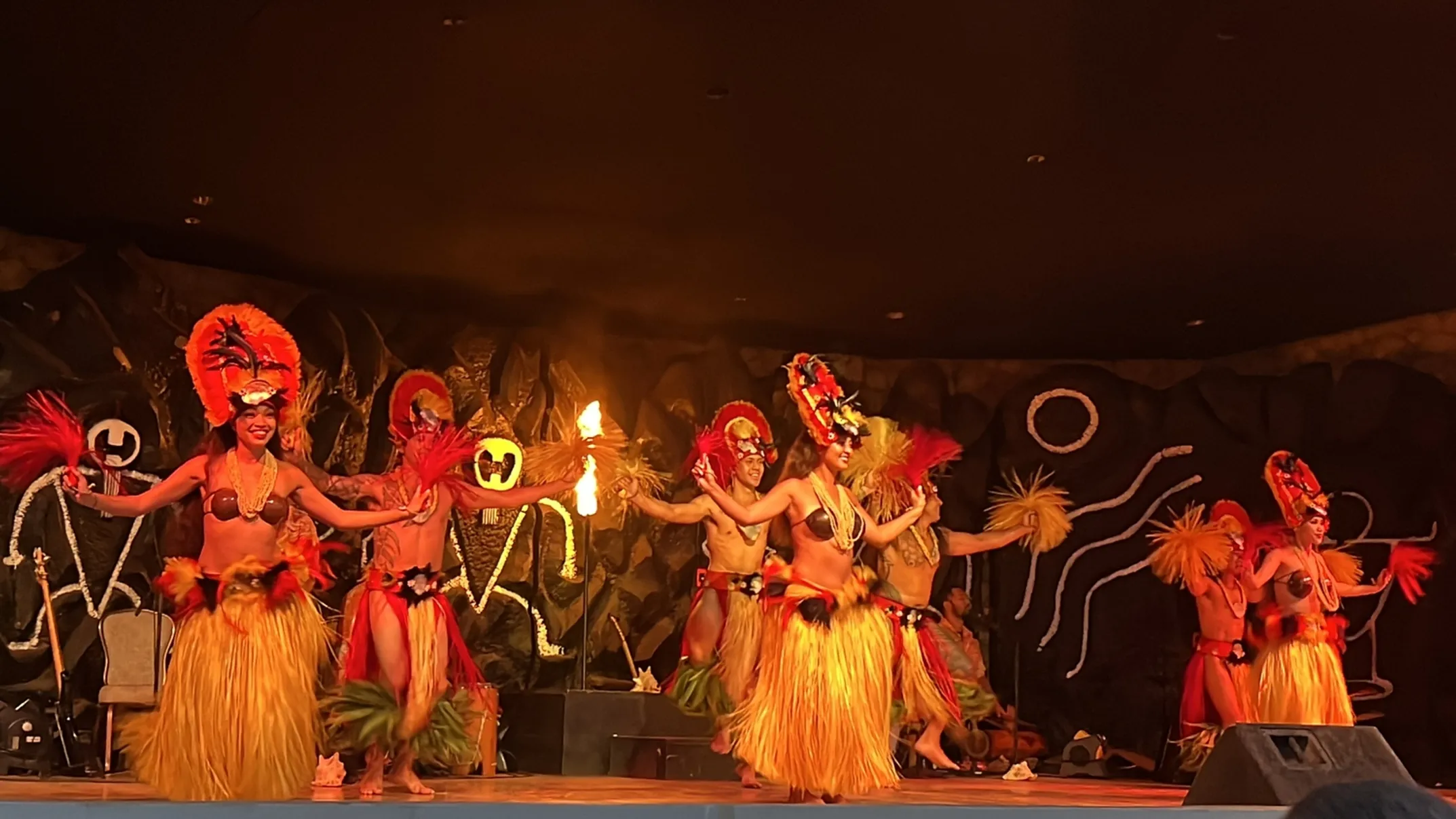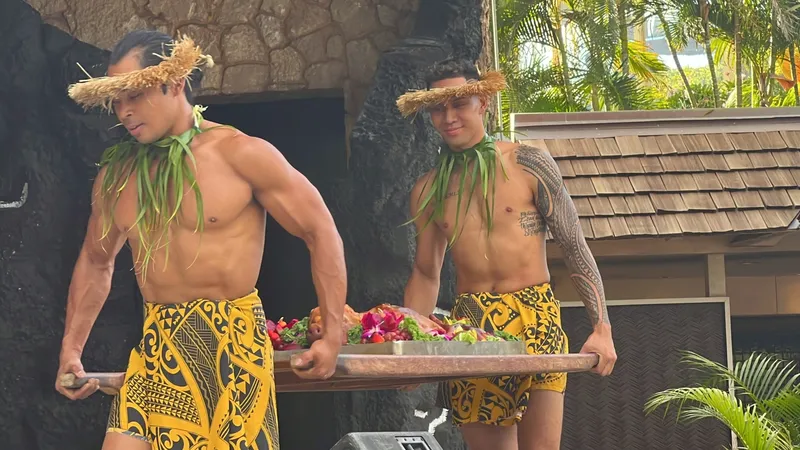

Lūʻau Etiquette
Showing respect for Hawaiian culture

Written by a Local Cultural Expert
Kalani MillerDressing with Aloha
Think "dressy casual with island style." For men, aloha shirts with nice shorts or linen pants work perfectly. For women, sundresses, floral prints, or flowing skirts capture the spirit beautifully.
Comfort matters more than fashion. Many lūʻau happen on grass or sand where heels become torture devices. Sandals or nice slippers (that's flip-flops to you mainlanders) keep your feet happy.
Avoid costume-like outfits. Plastic grass skirts and coconut bras mock our culture rather than honoring it.
Your goal is respectful island style, not Halloween party.

Experience Hawaiian Culture Respectfully
Join us for an authentic lūʻau celebration where you'll learn proper cultural practices while enjoying traditional Hawaiian hospitality, food, and performances.
Book Authentic Lūʻau
✅ Appropriate Attire
- • Aloha shirts or floral prints
- • Sundresses or flowing skirts
- • Nice shorts or linen pants
- • Comfortable sandals
- • Light jacket for evening
❌ Avoid These
- • Plastic grass skirts
- • Coconut bras or costumes
- • High heels on grass/sand
- • Overly revealing clothing
- • Formal business attire
Respecting Our ʻĀina
The land that hosts your lūʻau is sacred to us. Treat it with care. Don't litter - use provided trash containers. Don't pick plants or flowers unless specifically invited to. Some areas might be sacred sites. Show reverence by not touching or disturbing them.

Experience Lūʻau
Join us for an authentic Hawaiian lūʻau. Show respect while experiencing the warmth of our culture!
Reserve Lūʻau Package🙏 Etiquette Essentials
- Dress: Island casual, not costume
- Phones: Silent during performances
- Food: Try everything offered
- Participation: Join when invited
- Respect: Stay until the end
📚 Basic Hawaiian Words
- Aloha: Hello, goodbye, love
- Mahalo: Thank you
- ʻOhana: Family
- Keiki: Child
- Pau: Finished
📧 Cultural Updates
Learn more about respectful cultural participation and Hawaiian traditions.
During Performances
Silence phones completely - not just vibrate. Bright screens distract performers and other guests. If you must leave your seat, do it quietly between acts.
Show appreciation through applause. Our performers pour their hearts into preserving and sharing our culture. Your response feeds their spirits.
Food Respect
Try everything offered. I know poi looks weird. I know some dishes seem unfamiliar. But openness to our food shows openness to our culture.
Use serving utensils at buffets, not your personal fork. Take only what you can eat. Wasting food disrespects the resources and effort that created the feast.
Say "mahalo" to servers and staff. These simple acknowledgments mean more than you know.
Cultural Sensitivity
Accept corrections gracefully if someone explains a better way to do something. We appreciate when visitors want to learn and improve.
Don't interrupt ceremonies or prayers with questions or comments. Sacred moments deserve respectful silence.
Learn basic Hawaiian words like "aloha" and "mahalo," but don't try to "talk local" if you don't understand the context. Sincerity matters more than vocabulary.
Sincerity matters more than vocabulary. Your genuine interest in learning is what counts.
A Critical Point About Cultural Appropriation
Listen carefully: unless you're Hawaiian or deeply connected to our culture, don't throw parties you call "lūʻau." Culture is identity, not party theme. Sacred elements like hula and traditional dress aren't costumes for your backyard barbecue.
Commercial lūʻau in Hawaiʻi exist to share our culture respectfully. They employ local people, support traditional arts, create educational experiences. Home "lūʻau" on the mainland often trivialize what's sacred to us.
Appreciate our culture by experiencing it in its proper context. Support authentic expressions. But don't appropriate what doesn't belong to you.
Staying Connected
Remain engaged throughout the evening. Leaving early - especially during performances - shows disrespect for everyone who worked to create your experience.
The fire knife dance always concludes the show for good reason. It's the climax everything builds toward. Missing it is like leaving a concert before the encore.
Show gratitude to everyone who made your evening special. These people chose to share their culture with you. Honor that gift with your attention and appreciation.
These people chose to share their culture with you. Honor that gift with your attention and appreciation.

Join Us for an Authentic Cultural Experience
Show respect for Hawaiian traditions while experiencing the warmth and beauty of our culture. Book your lūʻau and be welcomed as ʻohana.
Experience Traditional Lūʻau
